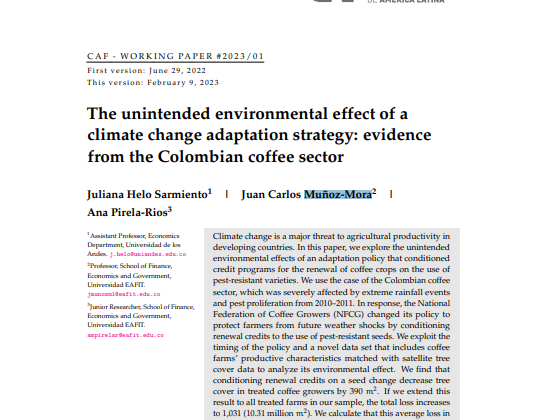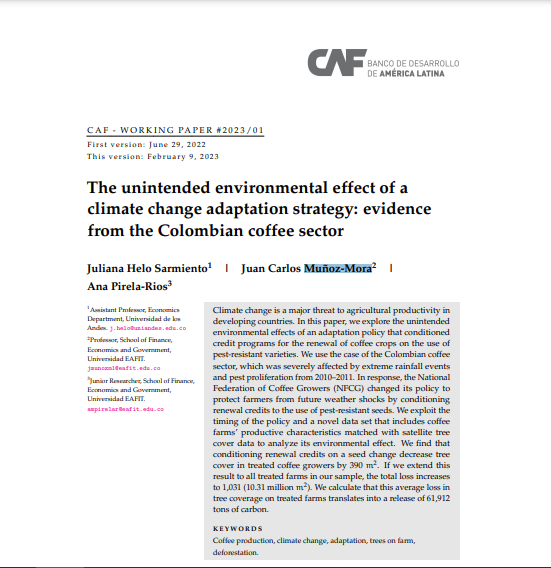The unintended environmental effect of a climate change adaptation strategy_evidence from the Colombian coffee sector
Year: 2023
Content-Type: Research Paper
Description: Climate change is a major threat to agricultural productivity in developing countries. In this paper, we explore the unintended environmental effects of an adaptation policy that conditioned credit programs for the renewal of coffee crops on the use of pest-resistant varieties. We use the case of the Colombian coffee sector, which was severely affected by extreme rainfall events and pest proliferation from 2010–2011. In response, the National Federation of Coffee Growers (NFCG) changed its policy to protect farmers from future weather shocks by conditioning renewal credits to the use of pest-resistant seeds. We exploit the timing of the policy and a novel data set that includes coffee farms’ productive characteristics matched with satellite tree cover data to analyze its environmental effect. We find that conditioning renewal credits on a seed change decrease tree cover in treated coffee growers by 390 m2 . If we extend this result to all treated farms in our sample, the total loss increases to 1,031 (10.31 million m2 ). We calculate that this average loss in tree coverage on treated farms translates into a release of 61,912 tons of carbon.
Pages: 46 pages
Author: Helo Sarmiento, Juliana; Muñoz-Mora, Juan Carlos
Categories: Agriculture / Farming, Climate / Resilience, Developing countries, Environment / Ecosystem, Policy / Governance, Publications, Sustainability
Tags: Agriculture, Climate Change, Developing Countries, Policies, Sustainable development


